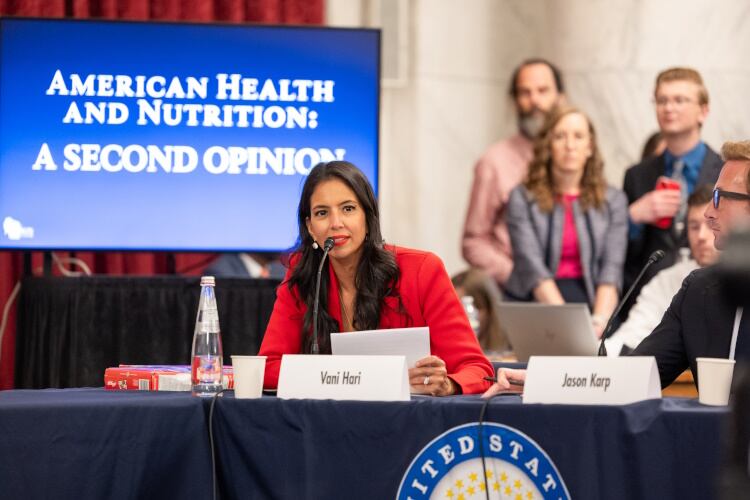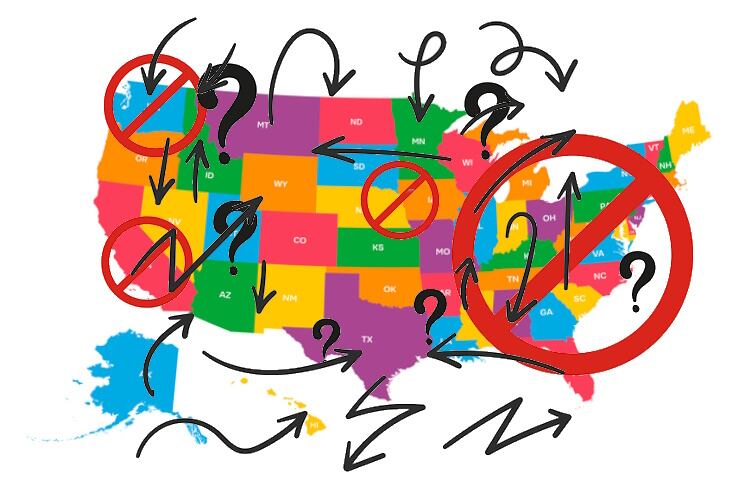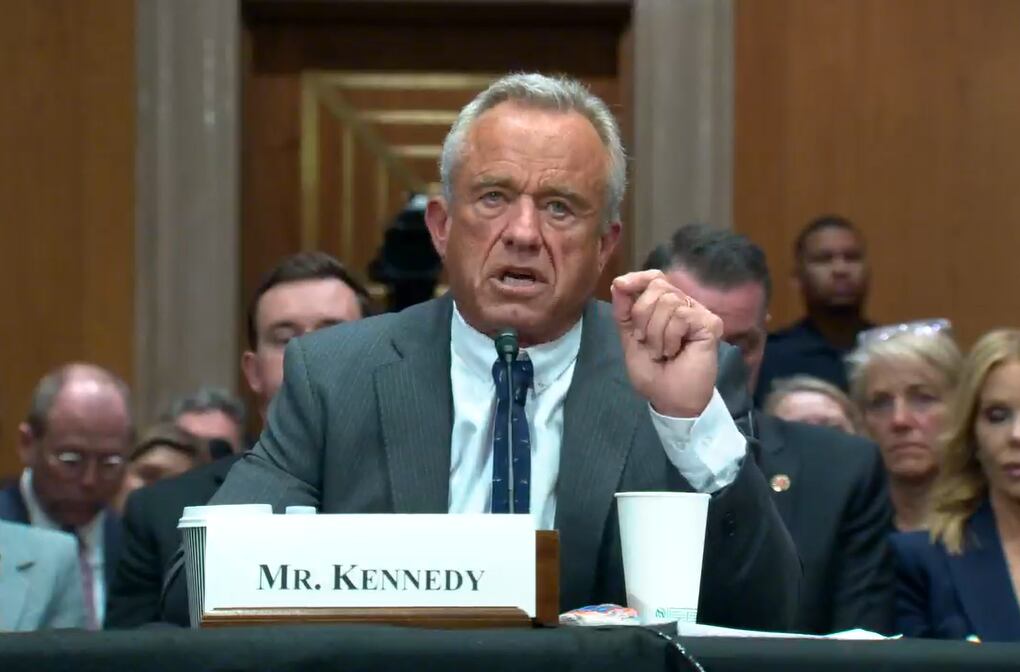As expected, the Trump-appointed Secretary of the Department of Health and Human Services issued a bold directive to some of the world’s biggest food manufacturers. RFK Jr has given companies until the end of his term in 2029 to strip artificial dyes from their products - or face government intervention. The announcement sent shockwaves through the industry, with investor confidence shaken and stock prices taking an immediate hit.
RFK Jr met with the CEOs of PepsiCo North America (Steven Williams), Kraft Heinz (Carlos Abrams-Rivera), General Mills (Jeff Harmening), Tyson Foods (Donnie King), WK Kellogg (Gary Pilnick), and JM Smucker (Mark Smucker), along with representatives from the Consumer Brands Association (CBA), the powerful trade group that lobbies on behalf of major food manufacturers.
In an internal memo leaked from the CBA, RFK Jr’s stance was clear: he expects “real and transformative” change by “getting the worst ingredients out of food products,” wrote Melissa Hockstad, president and CEO of the association.
“Removing artificial dyes is an urgent priority,” RFK Jr reportedly told executives. While he did not outline specific punitive measures, his firm stance rattled markets and put immediate pressure on companies to act.
A market meltdown

The market’s reaction was swift. General Mills’ stock tumbled from $65 to $60 (a nearly 8% drop); Kraft Heinz dipped from $31 to just over $30 (down 3%); Smucker’s fell from $114 to $111 (2.6%); and PepsiCo dropped from $152 to $148 (2.6%) - all sharper declines than the broader S&P 500. Meanwhile, Kellanova saw a minor dip from $82.45 to $82.29 (0.2%), while WK Kellogg - which was spun off in October 2023 - saw a steeper decline, falling from $21.97 to $19.87 (a 9.5% drop).
“The government wading into food regulations at this level always shakes investors,” said independent stock analyst Mark Kalinowski. “Companies now have to prepare for an era where artificial dyes and certain additives could be targeted for elimination, which could impact their bottom line.”
The science & the scepticism

Artificial dyes - particularly Red 40, Yellow 5, and Yellow 6 - are widely used in American processed foods, from cereals like Froot Loops to snacks like Doritos, candies like Skittles, baked goods, cake mixes and sodas. However, their safety has been debated for years. Multiple studies have linked these dyes to hyperactivity in children and some research has suggested a potential link to cancer in animal testing.
In fact, in the EU, warning labels are required on products containing these dyes and some countries – including Norway and Austria - have outright banned certain artificial colours. Unlike the EU, which proactively evaluates food ingredients before they reach shelves, US regulators have historically taken a more reactive approach.
“Consumers are demanding better food choices and questioning why other countries restrict harmful dyes while America continues to allow them,” said Hillary Pugh Kent, a Republican legislator in Virginia who recently helped pass a bill banning dyes from public school meals.
Industry scrambles to respond

Facing mounting public pressure, some food companies have already begun to adjust. In a November 2024 statement, General Mills stated: “Because this is always an evolving space, we work in close partnership with policymakers on this issue. We will engage with federal regulators as they consider any additional changes they may propose.”
Kellanova echoed this sentiment, emphasising its commitment to working with lawmakers “across the political spectrum.”
The CBA’s internal memo also suggested that food manufacturers are looking for ways to work with regulators to avoid being caught flat-footed. “We will be working with your teams to gain as much alignment as possible about how we move forward and ensure the industry is positioned in the best possible way as we navigate next steps forward,” Hockstad wrote in the memo to RFK Jr. “But to underscore, decision time is imminent.”
Meanwhile, PepsiCo announced it would remove artificial dyes from eight brands under its portfolio but did not disclose which ones. The Purchase, NY-headquartered conglomerate has already reformulated products like Doritos and Mountain Dew for international markets without dyes, raising the question: if they can do it overseas, why not in the US?

Vani Hari - also known as Food Babe - has long been a leading advocate for banning artificial dyes and additives in the US. “I have been working on this issue for over a decade and I am thrilled Secretary Kennedy laid out an ultimatum,” she said. “These food companies have already reformulated their products without dyes in so many countries - now it’s time for them to do the same in America.”
States take action

Even before RFK Jr’s ultimatum, states had already begun moving against artificial dyes. More than 26 US states now have pending legislation to regulate or ban artificial colours. In California, Governor Gavin Newsom recently signed a bill outlawing Red 40, Yellow 5, Yellow 6, Blue 1, Blue 2 and Green 3 in school meals.
West Virginia is taking an even more aggressive stance, with legislation that would ban a wide range of dyes and additives from all food products sold in the state. The measure - which has bipartisan support - is expected to be signed into law soon.
“This is a movement that’s no longer just coming from consumer advocacy groups - it’s gaining real momentum at the legislative level,” said Jennifer Pomeranz, associate professor of public health policy at New York University. “People are tired of waiting for the FDA to take meaningful action.”
A direct hit on the FDA’s GRAS system

RJK Jr’s campaign doesn’t stop at artificial dyes. He’s also set his sights on dismantling the FDA’s Generally Recognized as Safe (GRAS) programme, which allows food manufacturers to introduce new ingredients without FDA approval if their own experts deem them safe.
“For far too long, ingredient manufacturers and sponsors have exploited a loophole that has allowed new ingredients and chemicals, often with unknown safety data, to be introduced into the US food supply without notification to the FDA or the public,” Kennedy has publicly stated.
The GRAS system has come under increasing fire, especially after the FDA took more than 30 years to officially ban Red 3 Dye, despite evidence linking it to cancer in animals. Former FDA Commissioner Dr Robert Califf, who resigned in January, noted that attempts to reform GRAS have been blocked in the past. “The industry has resisted it; the Republican Congress has blocked it. Now, if they’re in favour, let’s take advantage of it and get this done.”
What’s next?

RFK Jr’s push is a gamble. While consumer advocacy groups hail his efforts, the food industry is guaranteed to fight back hard. Reformulating food products without synthetic dyes is costly, and companies worry about how customers will react to changes in taste and appearance.
The National Confectioners Association (NCA) warned that removing artificial dyes could increase costs and limit product availability. “These bans will make food significantly more expensive and less accessible to consumers,” it said in a statement.
However, momentum is building. “The writing is on the wall,” said Marion Nestle, professor emerita of nutrition at NYU. “Companies will eventually have to reformulate, whether they like it or not. The only question is whether they do it voluntarily or get forced into it.”
One thing is certain: food companies are now on notice. Whether they choose to act or wait to be pushed, the landscape of American food regulation is shifting rapidly.


